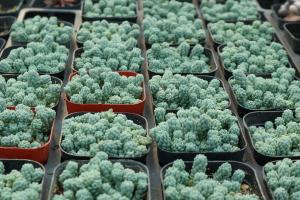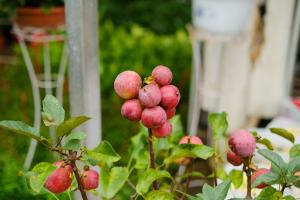Can I Plant Pumpkins in July?
Introduction
Pumpkins are a popular crop that can bring vibrant colors and delicious flavors to your fall harvest. Many gardeners consider planting pumpkins in late spring or early summer to ensure a successful harvest. However, what if you missed the planting window and are considering planting pumpkins in July? Can you still grow pumpkins successfully? In this article, we will explore the factors that affect pumpkin growth and whether planting pumpkins in July is a good idea.
The Growing Conditions for Pumpkins
Before delving into whether you can plant pumpkins in July, it's essential to understand the ideal growing conditions for pumpkins. Pumpkins thrive in warm soil and bright sunshine. They require well-draining soil that should be moist but not waterlogged. Additionally, pumpkins are heavy feeders and require nutrient-rich soil to support healthy growth.
The Growing Season for Pumpkins
The ideal time to plant pumpkins depends on the number of days your area experiences of frost-free weather. Typically, pumpkins require a growing season of 90 to 100 days. This means that if your area experiences a frost-free season of 120 days, you can plant pumpkins as late as the end of July or early August. However, if you live in an area with a shorter growing season, planting pumpkins in July may not be the best idea.
Planting Pumpkins in July
Assuming you live in an area with a long enough growing season, you may be able to plant pumpkins in July. However, the key to planting pumpkins in July is to ensure that the soil is warm enough for the pumpkin seeds to germinate. Soil temperatures must be at least 70 degrees Fahrenheit for successful germination. It's helpful to warm the soil by covering it with black plastic a few weeks before planting. Additionally, water the area thoroughly to ensure that the soil stays moist.
Caring for Pumpkins
Once the pumpkin seeds have germinated, it's vital to care for the plants correctly. Keep the soil evenly moist, but make sure not to overwater. Too much water can lead to root rot and other diseases. Additionally, ensure that the pumpkin plants receive six to eight hours of direct sunlight every day. Pumpkin plants are also heavy feeders, so make sure to fertilize regularly to provide them with the nutrients they need. Lastly, keep an eye out for pests like squash bugs and cucumber beetles, which can damage your pumpkin plants.
The Bottom Line
In conclusion, it's possible to plant pumpkins in July if your area has a long enough growing season. However, ensure that the soil is warm enough for the seeds to germinate and provide the pumpkin plants with the right care to thrive. Remember that pumpkins require a lot of sunshine, water, and nutrients to grow successfully. By following these tips, you can still enjoy a bountiful harvest of pumpkins, even if you missed the planting window in the spring.

 how many times do yo...
how many times do yo... how many planted tre...
how many planted tre... how many pine trees ...
how many pine trees ... how many pecan trees...
how many pecan trees... how many plants comp...
how many plants comp... how many plants can ...
how many plants can ... how many plants and ...
how many plants and ... how many pepper plan...
how many pepper plan...































